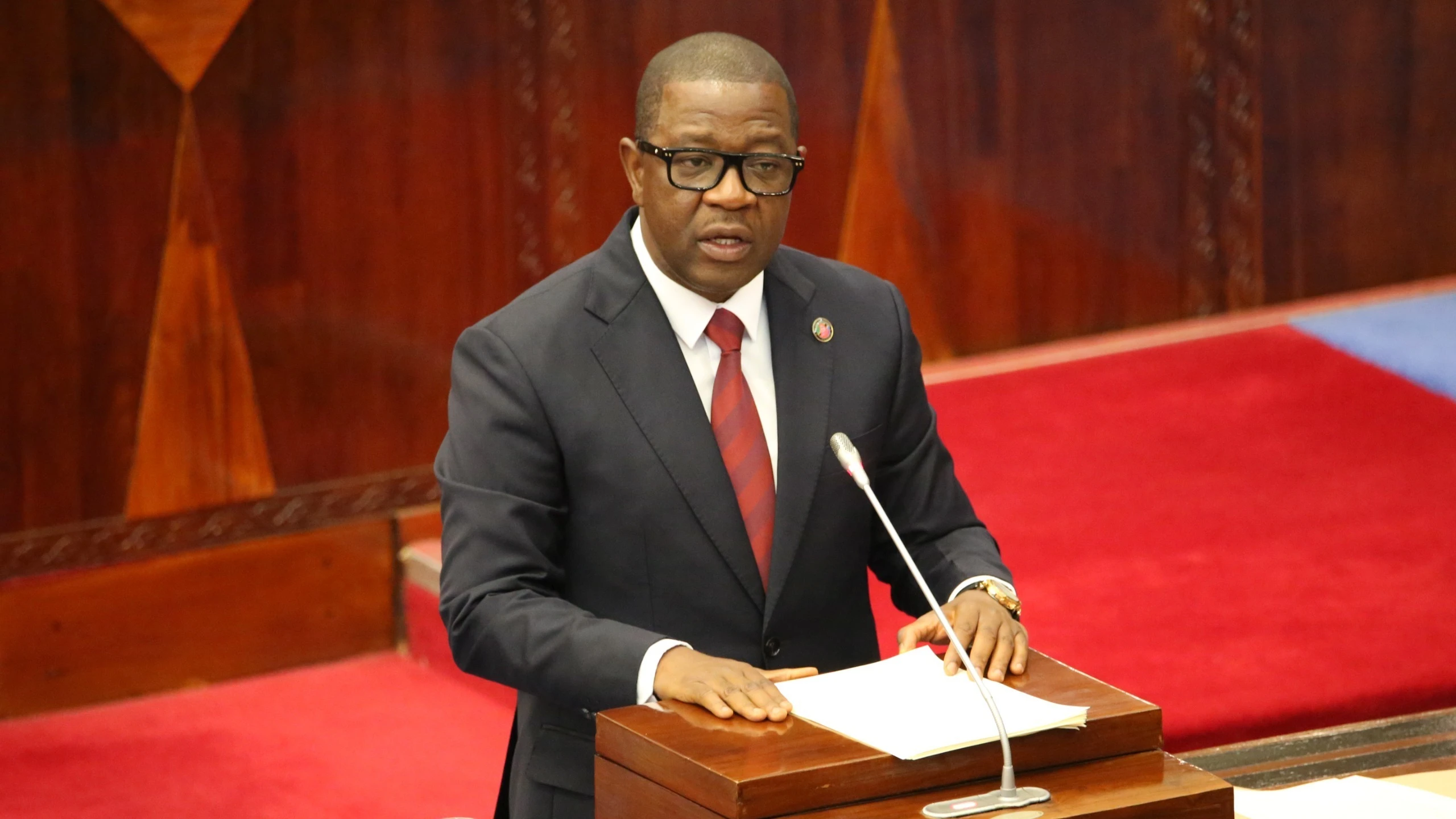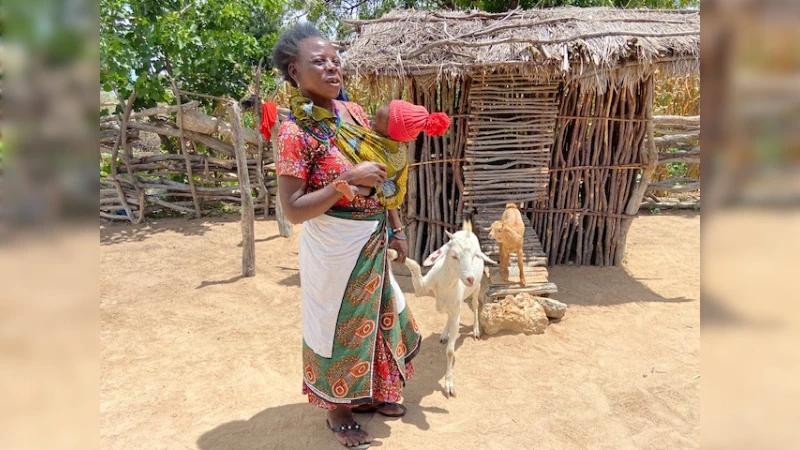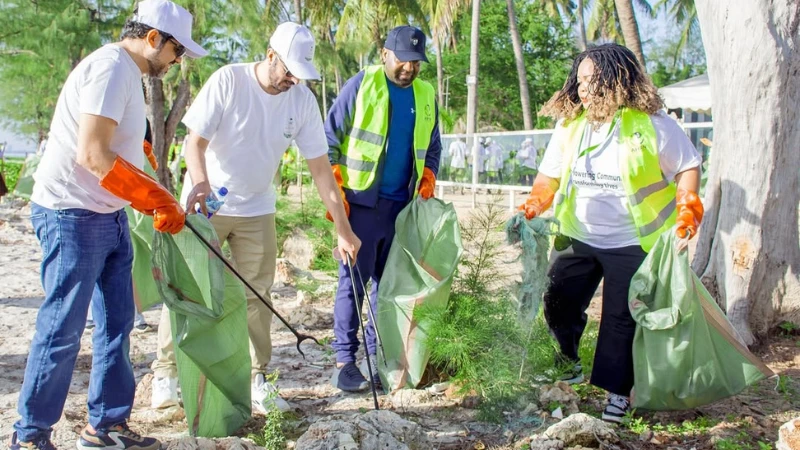Tanzania ranking high in Africa for sustainable banking efforts

Tanzania has emerged as a significant player in sustainable banking within Africa, securing the third position in the latest Sustainable Banking Assessment (SUSBA) report by the World Wide Fund for Nature (WWF).
The report, released yesterday, evaluated eight African nations, with South Africa and Kenya leading the pack. Tanzania achieved a score of 37.7 percent in implementing Environmental, Social, and Governance (ESG) regulations and guidelines for its financial institutions.
In January this year, the Bank of Tanzania (BoT) published the guidelines on Reporting of Sustainability - Related Risks and Opportunities for Banks and Financial Institutions, 2025 to guide banks and financial institutions to disclose information on sustainability-related risks and opportunities.
This places Tanzania behind South Africa (50.1 percent) and Kenya (43.7 percent), but ahead of other assessed countries including Namibia, Zambia, Gabon, Cameroon, and the Democratic Republic of Congo (DRC).
Last month, the Tanzania Institute of Bankers (TIOB) also took a major step in advancing ESG education within Tanzania’s banking sector by partnering with EmpowerESG, the initiative that will take three years.
The WWF report highlights the growing momentum of integrating E&S practices within Tanzania's financial sector, attributing it to the country's commitment to sustainable development.
It notes Tanzania's proactive steps in adopting sustainable finance practices, supported by regional frameworks like the EAC Climate Change Policy Framework and guidance from international bodies such as UNEP FI.
These efforts are aimed at aligning financial activities with global sustainability standards and fostering responsible investment.
Significant progress has been made in green finance, with Tanzanian institutions beginning to engage in climate resilience projects and exploring the potential of green bonds, with notable example of NMB Bank's $400 million green bond programme.
Furthermore, commercial banks are increasingly exploring opportunities to finance sustainable agriculture and infrastructure projects, supporting Tanzania's transition towards a more sustainable economy.
Despite these advancements, the report identifies persistent challenges. It emphasizes the need for clearer regulatory guidelines for E&S risk management within the financial sector, particularly in addressing the transition risks associated with Tanzania's reliance on traditional energy sources.
Access to affordable green financing for small enterprises and underprivileged communities also remains limited, hindering the widespread adoption of sustainable practices.
The WWF underscores the importance of strengthening regulatory oversight and providing incentives for financial institutions to further integrate E&S principles to achieve the country's sustainable development goals and address climate vulnerabilities.
The Tanzanian government's increasing engagement in sustainable finance through partnerships with regional and international organizations is noted as a positive step.
While Tanzania is showing promising developments in disclosure requirements and moving towards a green taxonomy, the report stresses that more needs to be done to ensure the country's financial institutions fully align with global sustainability goals.
Aaron Vermeulen, WWF Global Finance Practice Leader, stated that African banks, including those in Tanzania, are at a critical juncture. They can either drive a just and resilient transition or risk exacerbating environmental degradation and financial instability.
The SUSBA report, which assessed the ESG disclosures of 25 major African banks, revealed that while 72 percent acknowledge sustainability in their strategies, nearly half have not made concrete sustainable finance commitments.
Alarmingly, 84 percent do not disclose portfolio greenhouse gas emissions, and none have adopted science-based emissions reduction targets.
Experts believe Tanzanian banks must urgently accelerate their assessment of climate and nature-related risks within their portfolios to avoid inadvertently funding activities that contribute to environmental damage.
Jane Waiyaki, Head of Sustainable Finance for Africa and Europe at WWF International, emphasized the pivotal role of financial institutions in Tanzania's green future, urging them to strengthen internal ESG capacity, improve transparency, and develop sector-specific policies to ensure financing decisions support environmental sustainability.
The report also highlighted that only a small percentage of African banks acknowledge and assess nature-related risks, which are particularly relevant in Tanzania given its dependence on agriculture, tourism, and natural resources threatened by deforestation and land degradation.
Despite these challenges, the WWF sees positive momentum in Tanzania, alongside Kenya, Namibia, and South Africa, in enhancing sustainability reporting and policy frameworks.
The organization urges regulators to introduce mandatory ESG disclosures, create incentives for green lending, and develop clear green taxonomies.
Vermeulen stressed the crucial role of regulatory leadership in providing banks with clear guidance and consistent standards to redirect capital towards sustainable sectors, noting Tanzania's significant opportunity to lead in East Africa.
The report also calls for greater collaboration between banks, regulators, civil society, and development partners, emphasizing the need for banks to engage their clients on sustainability and develop green financial products.
In conclusion, the report notes that while Tanzania has demonstrated strong progress in sustainable banking, continued efforts in strengthening regulatory frameworks, enhancing transparency, and actively promoting green finance are essential to fully capitalize on the opportunities and mitigate the risks associated with climate change and environmental degradation.
The next five years are deemed critical for Tanzania and the continent to embrace green finance for long-term economic stability and environmental stewardship.
The second ranked Kenya is being recognized as a leader in Africa for its advancements in sustainable finance, driven by the development of policies such as the Kenya Green Bond Programme and the Sustainable Finance Initiative (SFI) by the Kenya Bankers Association (KBA).
These initiatives aim to promote the adoption of sustainable finance principles among financial institutions and align with global standards.
The Central Bank of Kenya (CBK) has also proactively addressed climate-related financial risks by issuing guidance on climate-related risk management (2021), draft Kenya green finance taxonomy (2024) and draft climate disclosure framework for the banking sector (2024).
The report further says the integration of E&S practices in South Africa’s financial sector has gained momentum, reflecting the country’s commitment to sustainable development.
South Africa is a pioneer in Africa in adopting sustainable finance practices, supported by frameworks such as the South African Sustainable Finance Initiative (SFI) and the implementation of the Green Finance Taxonomy by the National Treasury.
The South African Reserve Bank (SARB) has undertaken several initiatives to integrate ESG considerations and address climate-related risks within the financial sector including guidance notes for banks and insurer on climate-related risk practice and disclosure, incorporating ESG on green bond investment and assisting financial institutions in stress testing and risk management.
Top Headlines
© 2025 IPPMEDIA.COM. ALL RIGHTS RESERVED

























